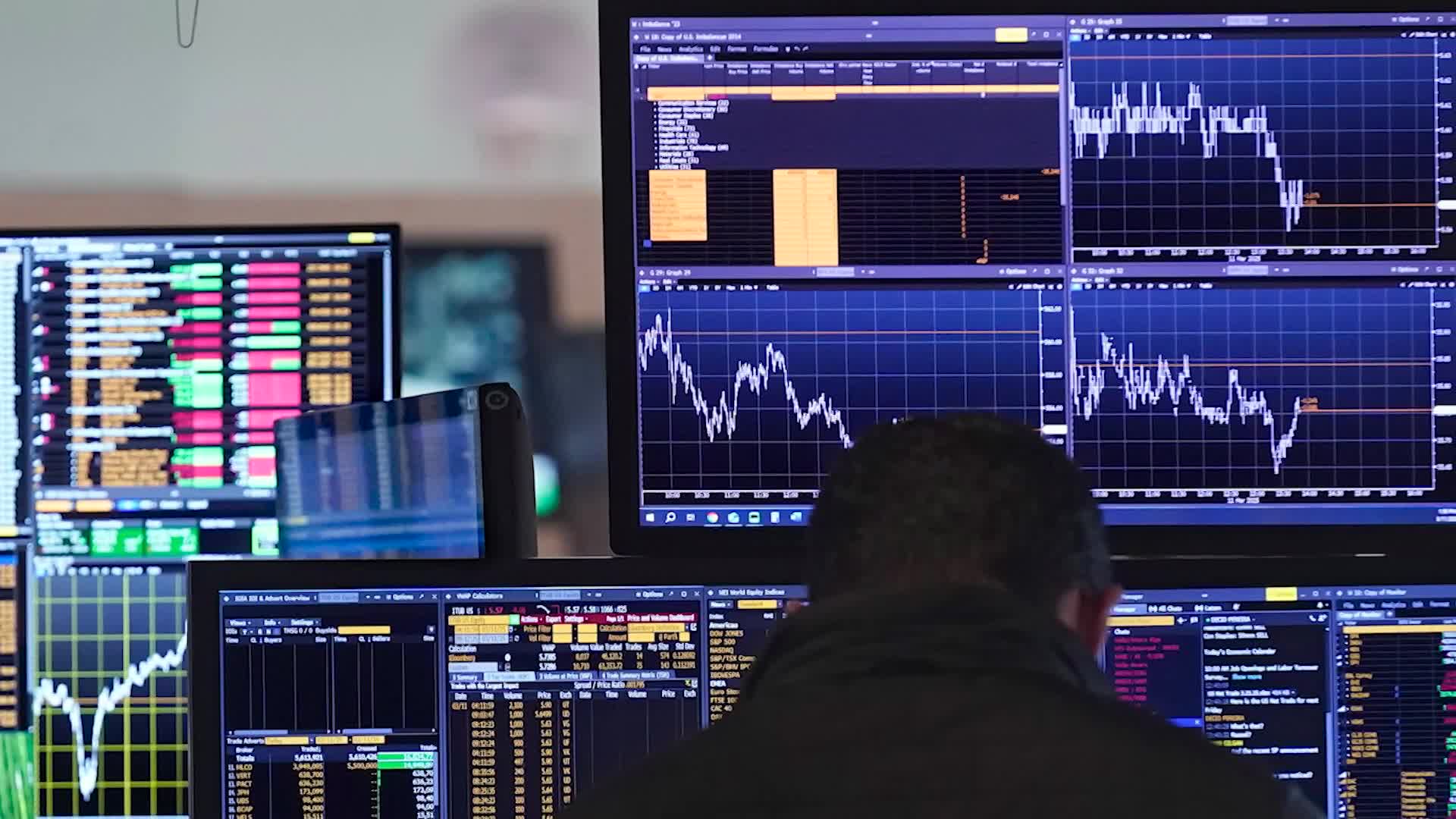Stock market ends choppy day mostly up before Trump tariff announcement. S&P 500 edges up

U.S. stocks closed a choppy session mostly higher as investors continued to wait for more clarity on President Donald Trump's tariff plan.
Trump has promised to roll out wide-ranging reciprocal tariffs on April 2, with the Washington Post reporting most imports could see a 20% tax. The story noted, though, the situation is fluid.
Investors hoped the tariffs would be targeted, narrow and levied on a handful of countries, but over the weekend, Trump said his reciprocal tariffs would “start with all countries.” Reports also said he was pushing his advisers to be more aggressive. The White House said on Tuesday tariffs announced on Wednesday would go into effect immediately.
Whether Trump means what he said over the weekend or if in the end, tariffs will be softened has kept the stocks volatile. On Monday, the broad S&P 500 index sank to a 6-month low before rebounding to end higher. Meanwhile, the blue-chip Dow swung through 700 points, opening 300 points lower but closing 400 points higher.
All three major stock indexes closed the first three months of the year lower, with the S&P 500 and Nasdaq putting in their worst first-quarter performance since 2022.
If tariffs turn out to be as aggressive as Trump has been threatening lately, economists predict an all-out trade war could ensue and the economy will slow while inflation picks up. European Commission President Ursula von der Leyen said the European Union has a plan to hit back with its own tariffs if talks with the White House fail and the U.S. moves forward with tariffs. Canadian Prime Minister Mark Carney also reiterated on Tuesday Canada would implement retaliatory tariffs.
Already, economic data are looking soft. A measure of manufacturing activity in March declined more than expected and fell into contractionary territory and prices to manufacturers rose at the fastest pace since mid-2022. February’s job openings were also slightly below estimates, the Bureau of Labor Statistics said.
The data "confirm the economy kicked off 2025 on the wrong foot," said Bill Adams, chief economist at Comerica Bank.
In the manufacturing data, "there were many comments regarding uncertainty created by tariff implementation, restocking ahead of tariffs, and tariffs affecting gross profits," noted Eugenio Aleman, chief economist at Raymond James.
But "regardless of what the administration announces, investors might view it as “Clarity Day," said Stifel Chief Washington Policy Strategist Brian Gardner. "We caution, however, that any relief rally should be taken with a grain of salt. We expect the tariff announcement will probably be more about a restructuring of the American economy than some sort of negotiating tactic."
All three major stock indexes ended off the day's worst levels. The Dow closed down 0.03%, or 11.80 points, to 41,989.96; the S&P 500 erased early losses to gain 0.38%, or 21.22 points, to 5,633.07; and the tech-heavy Nasdaq gained 0.87%, or 150.60 points, to 17,449.89.
The benchmark 10-year Treasury yield fell to 4.165%, and gold reached another record high above $3,150 per ounce as investors sought safer assets amid the stock market volatility and tariff uncertainty.
Corporate news
- PVH beat analysts' estimates in the final three months of last year. The clothes maker's shares jumped 18.24%.
- Shares of technology outsourcing firm WNS Holdings advanced 8.29% after Reuters reported it was exploring a sale amid takeover interest.
- Telehealth company Hims & Hers shares rallied 5.21% after the company said it will sell Eli Lilly’s Zepbound and Mounjaro on its platform.
- Progress Software's results in the first three months of its fiscal year beat analysts' estimates. The software company also expects its full-year earnings per share to top forecasts. Shares rose 12.13%.
- Johnson & Johnson shares fell 7.58% after a U.S. bankruptcy judge rejected the company's $10 billion proposal to end tens of thousands of lawsuits alleging its baby powder and other talc products cause ovarian cancer.
Cryptocurrency
BlackRock Chairman and Chief Executive Larry Fink said in his annual shareholder letter that digital assets like Bitcoin could challenge the U.S. dollar as the world's reserve currency.
“If the U.S. doesn’t get its debt under control, if deficits keep ballooning, America risks losing that position (as world’s reserve currency) to digital assets like Bitcoin,” he wrote.
Bitcoin was last up 2.81% at $84,878.87.
This story was updated with new information.
Medora Lee is a money, markets, and personal finance reporter at Paste BN. You can reach her at mjlee@usatoday.com and subscribe to our free Daily Money newsletter for personal finance tips and business news every Monday through Friday.